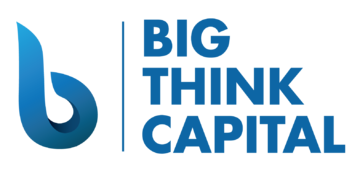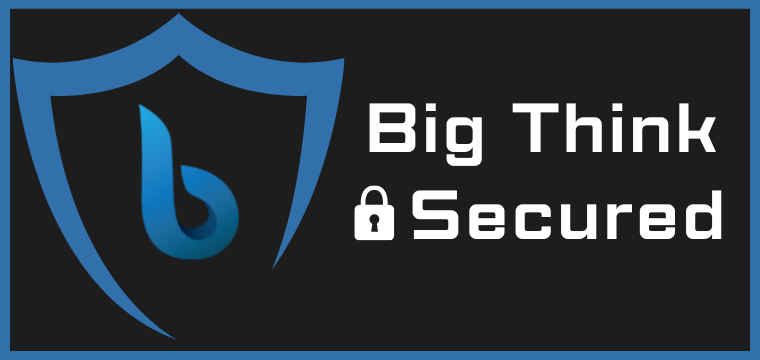
When pursuing financing options for your business, one of the most attractive sources is the Small Business Association (SBA). This governmental organization offers small business owners financing options with little-to-no interest, generous repayment periods, and flexible use of funding. These unique advantages combine to make SBA loans most small business owners’ first choice when pursuing funding for their business.
However, many business owners stall when trying to understand the differences between different SBA loans. They face a flurry of questions: What differentiates the SBA 504 vs the 7(a)? Which financing options do I qualify for? What does the application process look like? How do I know what’s right for my business?
If you’re a small business owner struggling to answer these questions, check out this blog! In it, we’ll break down two of the most popular SBA loan options and compare SBA loan 504 vs. 7(a).
What Are SBA Loans?
SBA loans are government-backed financing options designed to support small businesses. These loans are offered by participating lenders but are guaranteed by the Small Business Administration, mitigating the risk for lenders and making it easier to access capital. SBA loans offer favorable interest rates, longer repayment terms, and can be used for various purposes, such as starting a business, acquiring an existing one, or expanding operations.
Breaking Down the SBA 504
The SBA 504 loan program is specifically designed to help small businesses with long-term fixed assets, such as purchasing land, buildings, or equipment.
It consists of two loans: one from an SBA-approved Certified Development Company (CDC) covering 40% of the project cost, and another from a lender covering 50%. The borrower is required to contribute a minimum down payment of 10%.
When looking at SBA 504 loan rates, the CDC loan has a fixed interest rate and a longer repayment term of up to 25 years, while the lender’s loan has a variable interest rate and typically has a shorter term of around 10 years.
Interested in the SBA 504?
Big Think Capital excels in helping businesses apply for and secure funding that works for them. We emphasize finding customized financing options that help your business grow and develop. With SBA loans being an excellent option for such a wide range of companies, we’ve carefully honed our skills in helping organizations acquire the SBA loans they need.
If you’re interested in an SBA loan, you can’t find a better partner than Big Think—find out more below:
Breaking Down the SBA 7(a)
The SBA 7(a) loan program is more flexible and can be used for a wider range of purposes.
It offers working capital financing, refinancing of existing debt, purchasing of inventory, or buying of equipment. The 7(a) loans are provided directly by SBA-approved lenders, with the SBA guaranteeing a portion of the loan to mitigate the risk for lenders. These loans have maximum loan amounts, and the repayment terms can vary depending on the specific use of funds.
The SBA 504 vs. 7(a): Which Should You Apply For
Now that we better understand what differentiates these two loans, let’s dive into which one is most suitable for your business and compare the SBA 504 vs. 7(a).
You Should Apply for the SBA 504 If…
The SBA 504 loan is an excellent choice if your business needs are primarily focused on acquiring or renovating commercial real estate or purchasing long-term fixed assets. Here’s why:
Real Estate and Fixed Asset Financing: The SBA 504 loan program is specifically tailored for businesses looking to invest in real estate, such as buying a building for their operations or expanding their facilities. It can also be used to purchase long-term assets like machinery or equipment crucial to your business operations.
Favorable Interest Rates: With the SBA 504 loan, the Certified Development Company (CDC) portion has a fixed interest rate. This stability provides predictability in your loan payments, allowing for better financial planning. The SBA 504 loan rate on the CDC loan is typically below market rates, resulting in potentially lower borrowing costs for your business.
Longer Repayment Term: The SBA 504 loan offers an extended repayment term of up to 25 years for the CDC loan portion. This longer term helps in spreading out the loan payments over a more extended period, reducing the monthly payment burden and providing better cash flow management.
Lower Down Payment: While traditional commercial loans may require a significant down payment, the SBA 504 loan allows for a minimum down payment of 10%. This can help preserve your business’s working capital, giving you more financial flexibility.
Collaboration with Certified Development Companies (CDCs): To secure an SBA 504 loan, you will work with a CDC, which is a nonprofit organization certified by the SBA. CDCs play a crucial role in facilitating SBA 504 loans and provide guidance throughout the application process. Although working with a CDC involves additional paperwork and oversight, their expertise can be valuable in securing the loan and navigating the real estate or fixed asset purchase.
You Should Apply for the SBA 7(a) If…
If your business funding needs go beyond real estate or fixed assets and require more flexibility, the SBA 7(a) loan might be the better choice. Consider the following factors:
Versatile Use of Funds: When looking at 7(a) loans vs. 504 loans, the SBA 7(a) loan offers more flexibility in the use of funds. It can be used for various purposes, including working capital, purchasing inventory, refinancing existing debt, or acquiring a business. This versatility makes it an attractive option for businesses with diverse financing needs.
Higher Loan Limits: The SBA 7(a) loan program has higher maximum loan limits compared to the SBA 504 loan. Depending on your business’s size and industry, you can potentially access more substantial funding through the 7(a) program. The higher loan limits allow for greater financing options to support your business growth.
Variable Interest Rates: when compared to SBA 504 loan rates, the interest rates on SBA 7(a) loans are typically variable. While this means the rates may fluctuate over time, it also provides the possibility of benefiting from lower rates when market conditions are favorable.
Direct Lending from SBA-Approved Lenders: SBA 7(a) loans are provided directly by SBA-approved lenders, such as banks or credit unions. Working directly with a lender can streamline the application process, as you won’t need to involve a CDC or navigate additional requirements. This direct lending approach can be more convenient for businesses seeking a faster loan approval and disbursement.
Apply for Both If…
Instead of understanding it as SBA 504 vs. 7(a) loans, you should consider applying for both. This approach can be suitable if your business requires funding for a combination of real estate acquisition and working capital. Here’s why you might consider applying for both:
Capitalize on Different Financing Needs: By combining the SBA 504 and 7(a) loans, you can address different aspects of your business’s funding requirements. For instance, you can use the SBA 504 loan to secure financing for real estate or fixed assets while utilizing the SBA 7(a) loan to cover working capital needs, such as inventory, payroll, or marketing expenses.
Maximize Available Funding: Each loan program has its own maximum loan limits. By applying for both the SBA 504 and 7(a) loans, you can access a larger pool of funds. This can be particularly beneficial if your business has substantial funding needs, or if you anticipate significant growth opportunities that require a combination of capital assets and working capital.
Flexibility in Loan Structure: By opting for a dual loan approach, you have the flexibility to structure each loan according to your specific needs. You can customize repayment terms, interest rates, and loan amounts for each loan type, tailoring them to your business’s cash flow and financial objectives.
Mitigate Risk and Optimize Terms: Applying for both loan programs allows you to diversify your financing sources and potentially mitigate risk. If one application is unsuccessful, you still have the opportunity to secure funding through the other program. Additionally, you can compare the terms, interest rates, and fees of both loans to optimize your borrowing costs and choose the most advantageous option for each aspect of your business’s funding requirements.
Has Your Business Struggled Trying to Track Down Funding? Big Think Is Here to Help!
Navigating the complexities of SBA loans, the SBA 504 vs. the 7(a), and determining the best financing option for your business can be challenging. That’s where Big Think Capital comes in. As a trusted lender specializing in funding that drives success, we have the expertise and experience to guide you through the loan application process.
Whether you’re considering the SBA 504 loan, the 7(a) loan, or a combination of both, we provide personalized assistance. Our team of professionals will assess your business needs, eligibility, and goals to help you choose the optimal financing solution.
Don’t let the complexities of SBA loans hinder your access to the capital your business needs. Contact Big Think Capital today!








